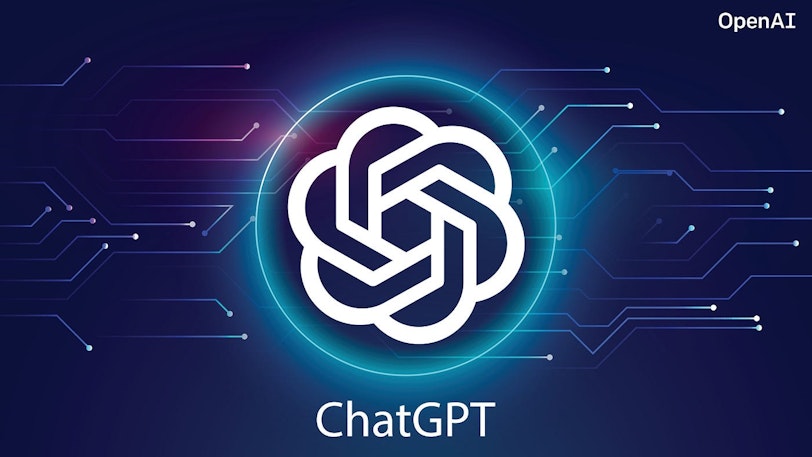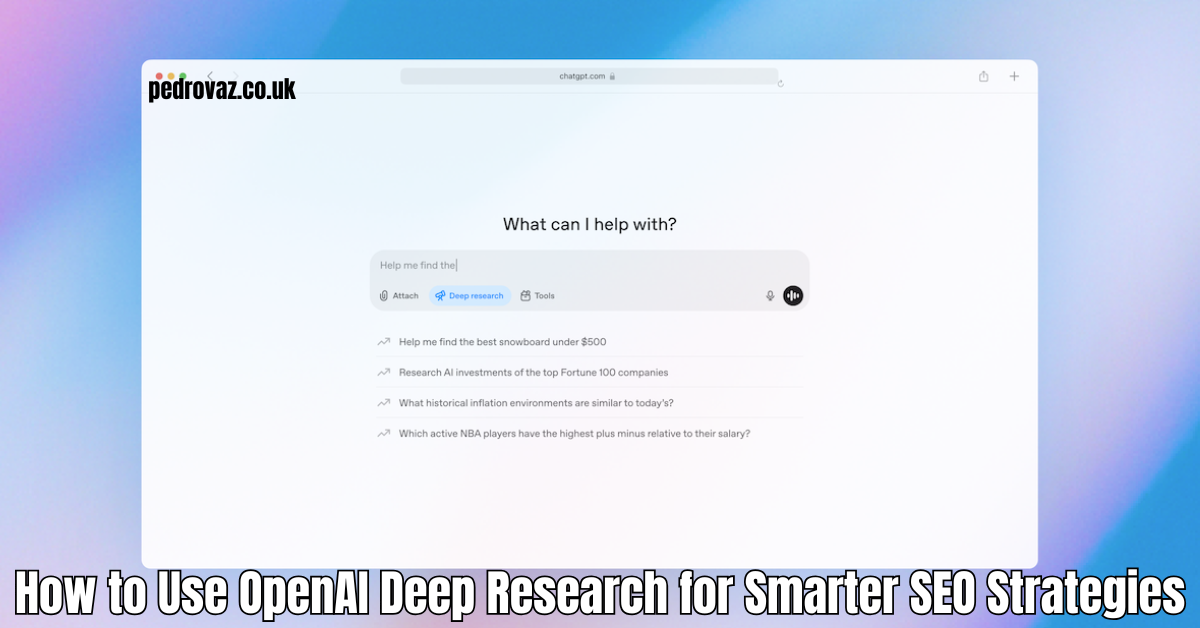How to Use OpenAI Deep Research for Smarter SEO Strategies
Discover how to use OpenAI Deep Research for smarter SEO strategies. Learn how AI-powered insights can enhance keyword research, content optimization, and search rankings for better results.
Introduction
Search engine optimization (SEO) is a game-changer in the digital world. Businesses and content creators rely on SEO to boost their visibility, attract organic traffic, and improve search rankings. However, staying ahead requires in-depth research, continuous learning, and data-driven strategies. OpenAI Deep Research is a powerful AI-driven tool that simplifies and enhances the research process for SEO professionals. This article will explore how to use OpenAI Deep Research for smarter SEO strategies, helping you uncover hidden insights, optimize content, and outperform competitors. Whether you’re a beginner or an advanced SEO expert, leveraging AI-powered research can give you a competitive edge in the digital marketplace.
Understanding OpenAI Deep Research
Before diving into its application for SEO, it’s essential to understand what OpenAI Deep Research is. This AI-driven tool automates online research, scans multiple sources, and synthesizes information into detailed insights. Unlike traditional keyword research tools, OpenAI Deep Research provides a comprehensive understanding of search trends, audience behavior, and content strategies. By leveraging AI, marketers can access accurate, up-to-date, and well-analyzed data without spending countless hours manually searching for information. Additionally, this technology is continuously evolving, making it an indispensable asset for modern SEO strategies.
Why OpenAI Deep Research is a Game-Changer for SEO
SEO requires in-depth knowledge of what users are searching for, how competitors rank, and what Google’s algorithms favor. OpenAI Deep Research streamlines this process by analyzing high-ranking content, identifying content gaps, and suggesting optimization techniques. Instead of guessing what works, marketers can make informed decisions backed by AI-driven data. This not only saves time but also increases efficiency in creating high-quality, search-optimized content. Moreover, it ensures that SEO strategies remain dynamic, adaptable, and in line with evolving search engine algorithms.

Competitor Analysis with OpenAI Deep Research
Understanding your competition is crucial in SEO. OpenAI Deep Research allows you to analyze competitors’ websites, their keyword strategies, and content performance. By examining the structure, tone, and engagement of high-ranking pages, you can identify opportunities to improve your own content. This AI-driven competitor analysis helps you discover untapped keywords, trending topics, and gaps in existing content. As a result, you can tailor your SEO strategies to outrank competitors and attract a larger audience. Additionally, AI-driven insights enable businesses to predict emerging trends and stay ahead in their industry.
Keyword Research and Topic Discovery
Keyword research is the backbone of SEO. OpenAI Deep Research enhances this process by finding high-performing keywords, long-tail variations, and related search terms. Instead of relying solely on traditional tools, AI-driven research dives deeper into search patterns, user intent, and semantic relevance. This helps marketers create content that aligns with what users are actively searching for. Furthermore, AI can analyze search queries in real-time, providing valuable insights into shifting trends and consumer behavior. By leveraging OpenAI Deep Research, you can uncover new content opportunities and build a solid keyword strategy.
Understanding Search Intent for Better Optimization
Search engines prioritize content that matches user intent. OpenAI Deep Research helps identify different types of search intent, such as informational, navigational, transactional, and commercial. By analyzing how people phrase their queries, AI can determine what kind of content best satisfies their needs. This enables SEO professionals to create highly targeted content that ranks better and drives more conversions. Additionally, optimizing content for intent improves user experience, reduces bounce rates, and increases engagement. With AI-powered research, you can ensure that your content aligns with what users expect and need.
Enhancing Content Quality and Readability
Creating high-quality content is essential for SEO success. OpenAI Deep Research can analyze top-performing articles to identify readability scores, sentence structure, and engagement levels. By studying these elements, you can refine your writing style to make it more engaging, clear, and reader-friendly. AI-powered tools can also suggest improvements in tone, formatting, and keyword placement to enhance overall content quality. Furthermore, content that is easy to read and understand is more likely to be shared, linked to, and ranked higher by search engines.
Improving On-Page SEO with AI Insights
On-page SEO involves optimizing various elements within a webpage to improve its ranking. OpenAI Deep Research can assist in optimizing title tags, meta descriptions, header tags, and image alt texts. AI can suggest the best keywords for each element, ensuring that they align with search engine requirements. Additionally, it can analyze competitors’ meta tags and provide recommendations for improvement. This not only boosts organic visibility but also enhances click-through rates (CTR). By using AI-driven insights, you can fine-tune your on-page SEO strategy and maximize search engine performance.
Content Clustering and Topic Authority
Search engines prefer authoritative content that covers a topic in-depth. OpenAI Deep Research helps with content clustering by grouping related topics and subtopics. Instead of creating isolated blog posts, AI can guide you in building topic clusters that strengthen your site’s authority. This approach improves internal linking, user navigation, and overall SEO performance. Additionally, AI-driven topic clustering enhances keyword distribution, ensuring that your content ranks for multiple related search queries. By adopting this strategy, you can position your website as a trusted resource in your niche.
Leveraging AI for Voice Search Optimization
Voice search is becoming increasingly popular, and optimizing for it requires a different approach. OpenAI Deep Research can analyze voice search trends, conversational queries, and natural language patterns. This enables marketers to create content that aligns with how people speak rather than type. Additionally, AI can help structure content in a way that improves featured snippets, making it more likely to appear in voice search results. As voice search continues to grow, incorporating AI-driven insights can give your SEO strategy a competitive advantage.

Tracking SEO Performance and Adapting Strategies
SEO is an ongoing process that requires constant monitoring and adaptation. OpenAI Deep Research can track key performance metrics, such as rankings, organic traffic, bounce rates, and conversion rates. By analyzing this data, AI can suggest adjustments to improve SEO strategies over time. Additionally, AI can identify emerging trends and algorithm changes, helping marketers stay ahead of the curve. Continuous optimization based on AI-driven insights ensures that your SEO efforts remain effective and results-driven.
Conclusion
OpenAI Deep Research is revolutionizing SEO by providing smarter, data-driven strategies. From competitor analysis to keyword research, content optimization, and performance tracking, AI enhances every aspect of SEO. By leveraging this technology, marketers can save time, improve accuracy, and stay ahead of search engine trends. Implementing AI-driven insights ensures that your SEO strategy remains effective, competitive, and future-proof. As digital landscapes evolve, embracing AI-powered research will be key to achieving long-term SEO success.
Read Also: Ingredients in Vullkozvelex Safe to Use? A Comprehensive Analysis








